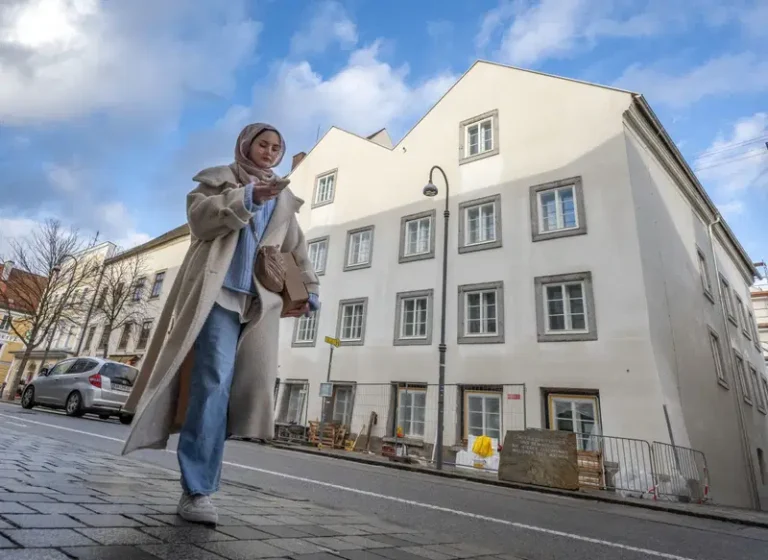
The country’s high drug prices would persist, as local production of the products is on the verge of collapse due to government policy inconsistencies.
Though the Nigerian pharmaceutical market has over 200 manufacturing and packaging companies comprised of three dominant segments: readily available over-the-counter drugs (43.1%), affordable generics (38.9%), and expensive branded patented drugs (12%), the drug market in the country has been completely dominated by imported drugs, which are extremely expensive for the average Nigerian.
As a result, drug prices in Nigeria have skyrocketed, with imported drugs priced primarily in dollars, according to Vanguard.
Data from Pharma West Africa rank the industry as the second largest in Africa, after South Africa, with an estimated market size of about ¦ 6.1 trillion according to data from Access Bank.
Market research from Goldstein Research predicted that the local pharma market size would increase at a Compound Annual Growth Rate, CAGR, of 9.1 per cent between 2017 and 2030.
Projections foresee a value surpassing N3.26 trillion by 2025 driven by a CAGR, of 11.5 per cent according to Access Bank Plc. Similarly, McKinsey & Company forecasts the market size to top N5.5 trillion by 2026. These projections highlight the immense potential of this sector in Nigeria.
Beneath this shiny surface, however, lies a dark side to the impressive credentials — stagnation.
Local drug manufacturing struggles to keep pace with the rapid growth. Many local pharmacies are overflowing with imported medications -a paradox. While the market thrives, domestic manufacturing which has capacity utilization below 50 per cent, cannot keep pace.
Currently, Nigeria manufactures only around 25 per cent of its pharmaceutical needs. Worse still, despite having a large domestic manufacturing sector, a staggering 70 per cent of medicines are imported (essentially from China and India) either legally or smuggled illegally. Estimates suggest only 30 per cent of Nigerians have access to genuine medications.
To address the imbalance, the federal government implemented various protective measures to stimulate local production by placing a ban on the importation of certain pharmaceutical products.
Since 2000, a host of products have been added to the list of banned items.
They include antipyretics such as paracetamol and aspirin, antimalarials, antibiotics, vitamin B complex tablets, multivitamin tablets, capsules and syrups (except special formulations), among a host of others.
But even as these measures aim to boost domestic manufacturing, challenges persist and overall success remains hinged on overcoming limitations in domestic manufacturing capacity.
Nigeria’s spending on imported pharmaceuticals has risen dramatically in recent years, according to a report by the Raw Materials Research and Development Council, RMRDC, which is the federal government’s agency responsible for industrial raw materials growth, promotion and utilisation.
From the RMRDC data, between 2017 and 2023, Nigeria committed over N3 trillion to the importation of pharmaceutical products. In 2016, over N126 billion went into pharmaceutical imports, dropping to about N119 billion in 2017 and rising to N185.5 billion in 2018.
There was a significant increase in importation spending from N520 billion in 2019 to N1trillion in 2020, a surge of 92.31 per cent.
Although there were decreases in 2021 and 2022, spending on imports remained considerably high at N544.4 billion and N445.7 billion respectively.
Industry watchers say the sharp rise in 2020 is attributable to the COVID-19 pandemic, which increased demand for medications and medical supplies worldwide.
However, the overall trend highlights Nigeria’s growing reliance on imported pharmaceuticals, which portends grave challenges for the country’s healthcare system in the long run.
With domestic production perpetually struggling to meet even a quarter of the country’s demand for medicines, a dangerous dependence on imports is inevitable, raising concerns about affordability and availability of essential drugs.
For many Nigerians, the local pharmaceutical business is in dire straits, with challenges from securing forex to basic operational challenges.
Indeed, the fortunes of Nigeria’s pharmaceutical drug market is divided. Despite the market surge, Nigeria’s private pharmaceutical manufacturing sector remains relatively small, with a share of manufacturing in the country’s GDP of only about four per cent.
Over the years, numerous local manufacturers have been compelled to close shop and the cascading impact is increasing susceptibility of Nigerians to shortages of local medicines and more reliance on foreign medications.
Industry watchers argue that only local manufacturing of drugs could guarantee Nigerians’ have access to essential medications and reduce dependence on foreign imports.
Pharma sector unique, deserves special Govt policies — PMG-MAN
In the view of the Chairman of the Pharmaceutical Manufacturing Group of the Manufacturer’s Association of Nigeria, PMG-MAN, Pharm Oluwatosin Jolayemi, local manufacturers of drugs are facing a plethora of challenges, ranging from basic pitfalls of the lack of electricity which has always been a problem for manufacturing, to the lack of good roads and infrastructure.
Jolayemi, who is also Group Chief Executive Officer, Daily Need Group, a wholly-Nigerian owned conglomerate, said: “As a manufacturer, you basically have to produce your own electricity, produce your own pipe-borne water, produce everything for yourself.
But the major problem we see in the industry now is the inconsistencies and overlapping issues of government policies which range from the seaports, cost of clearing of goods, registration of products, to double taxation from ministries, departments and agencies, MDAs.
These issues are so convoluted that one is tempted to think that there is a war against local manufacturing, particularly in the pharmaceutical industry.”
Jolayemi opined that the pharmaceutical industry is unique from any other kind of manufacturing, because it is concerned particularly with the health of the nation and should be treated specially.
“If we neglect the health of our nation, then we will not even have the ability or capacity to be able to function appropriately. So the issue with the industry is unique and should be given special attention because we are supposed to be producing the essential medical need for the nation and not to be treated like those that are not doing essential products.
“So the pharmaceutical industry needs a policy that is consistent, a policy that encourages investment in order to help us begin to think of going into specialist products and all sorts. We have general problems, then we have specific problems.
“Now the specific problems come along with registration of products, the ability of government to be able to separate issues. The pharmaceutical industry must be separated and treated as a special case,” Jolayemi remarked.
Delete import duty levy to ensure our survival — Adeosun
Chairman of St. Racheal’s Pharmaceuticals, Pharm Akinjide Adeosun, described Nigeria as being in stagflation, following what he sees as an economic cycle in which the inflation rate is high or increasing.
“Stagflation helps to see opportunity in the difficulties of high inflation, high unemployment and slow growth of Nigeria. The CBN has been increasing MPR for about a year without any concrete result. It is now time to leave inflation alone and start chasing growth. You cannot chase growth, if manufacturers cannot borrow at a single digit.
“When you borrow money at an interest rate of about 38 per cent to import drugs into the country, coupled with the high cost of fuel/diesel, clearing cost, import duties and levy duties (as not all drugs attract zero per cent. Import duties may be zero per cent, but levy is about 20 per cent), no business can survive.”
While noting that operating in Nigeria had proven to be extremely tough, due to a demanding economic environment that includes variable exchange rates, hefty import levies, stringent regulatory processes, and bureaucratic impediments, Adeosun tasked the federal government to focus on growth rather than chasing inflation.
“Import duty levy should be deleted to enhance the survival of the pharmaceutical sector. If these strategies are executed, we can tum the difficulty of stagflation into the superhighway road that will lead us into economic prosperity,” he remarked.
FG should introduce petroleum sector reforms — ACPN
On his part, the National Chairman, Association of Community Pharmacists of Nigeria, ACPN, Pharm. Adewale Oladigbolu, regretted that the pharmaceutical sector has funding gap in billions of naira, adding that it was a depressed industry.
“This industry affects everything we do as a country since a healthy population is productive and contributes to economic prosperity. We don’t have enough capital to operate. We don’t also have enough facilities in Nigeria to produce drugs locally. It is important that government comes in heavily.
“The same kind of interventions seen in the petroleum industry should be done in the pharmaceutical sector. We need government to give grant to the industry. Government has great intention to transform the industry, but those intentions have not been translated to practical means.
‘’It is time for government to take action by fulfilling its promises to the industry,”Oladigbolu noted.
Last week, President Bola Tinubu signed an Executive Order that aims to lower production costs and boost the competitiveness of local manufacturers by introducing zero tariffs, excise duties, and value added tax (VAT) on imported pharmaceutical inputs on certain machinery, equipment, and raw materials.
Among the specified items are Active Pharmaceutical Ingredients (APIs), excipients, and other necessary raw materials needed for the manufacturing of critical health products like drugs, syringes, and needles, as well as Rapid Diagnostic Kits. Additionally, the Order establishes market-shaping mechanisms, like framework contracts and volume guarantees, to support local manufacturers. Industry watchers generally hailed the move, even as they essentially adopted a let’s wait-and-see stance.
Lauding the new Executive Order, Professor Cyril Osifoh, President of the Pharmaceutical Society of Nigeria, PSN, highlighted its potential to strengthen domestic production.
He emphasised the inclusion of Active Pharmaceutical Ingredients (APIs), excipients, and essential raw materials – all crucial for manufacturing vital health products.
“The PSN is thrilled by the order’s possibilities. We urge the coordinating minister of health to consider additional measures to immediately address the rising cost of medications in Nigeria. ‘’This could involve adjustments to tariffs and streamlining procedures by key regulators within the pharmaceutical sector,’’ Professor Osifoh stated
On its part, the PMG-MAN acknowledged the potential of the Executive Order to address rising medicine costs, but noted that successful implementation hinges on collaboration with relevant MDAs, even as it awaited the full details.








